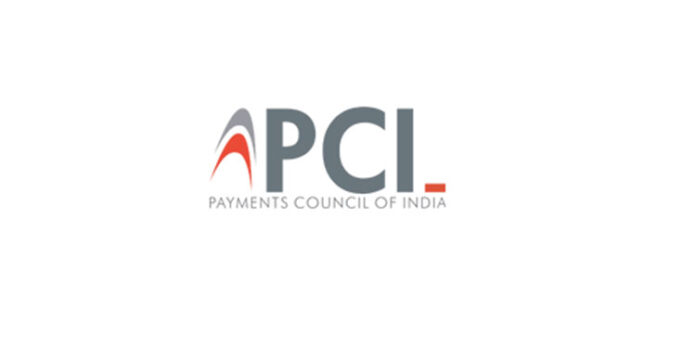Mumbai, 25th August 2021: Payments Council of India (PCI), the representative body for payment companies in the country, says that the customers will not have to remember the 16-digit card number for online payments effective Jan 2022, in contrast to what has been reported in certain sections of the media. The industry and PCI are working in alignment with Reserve Bank of India (RBI) on possible secure card on file solutions which will ensure a near similar customer experience for online purchases whilst enhancing the security of the storage of card credentials of customers.

Important Announcement – EasyShiksha has now started Online Internship Program “Ab India Sikhega Ghar Se”

On March 31, 2020, RBI released a notification, for payment system providers and participants to put in place workable solutions such as tokenization for enhancing the security of storage of customer’s card credentials, within the framework of the relevant guidelines issued by the RBI. PCI has shared with RBI the principles which can be adopted by the industry for developing such secure card on file solution.
“We are working closely with RBI on charting a roadmap of the possible solutions that could be adopted by the industry for securing the storage of raw card data. Solutions being worked upon, would not require the customers to enter their card number manually every time they make an online purchase” says PCI. “The solutions will adhere to the security checks and controls and frameworks prescribed by RBI”, it further added.
Top Courses in Software Engineering
From tightening the security of card not present transactions by introducing the requirement of AFA in 2009 to tackling the risk associated with data storage/breach effective Jan 2022, RBI has played a key role in enhancing the security of card transactions.
The apex monetary institution has also played a catalytic role in the development and growth of digital payments across the country thereby progressing towards the goal of “less-cash society”. It has set out guidelines and circulars for the effective functioning of the payment systems with focus on security controls. RBI has over the time published several guidelines on security of card transactions, as cards is right now one of the most accepted forms of digital payment.
Empower your team. Lead the industry
Get a subscription to a library of online courses and digital learning tools for your organization with EasyShiksha
Request NowQ. Are EasyShiksha's internships truly free?
Yes, all internships offered by EasyShiksha are completely free of charge.
Q. How can I apply for an internship with EasyShiksha?
You can apply by visiting our website, browsing available internships, and following the application instructions provided.
Q. What types of internships are available through EasyShiksha?
EasyShiksha offers a wide range of internships across technology, business, marketing, healthcare, and more. Opportunities are continuously updated.
Q. Will I receive a certificate upon completing an internship?
Yes, upon successful completion, you will receive a certificate recognizing your participation and achievements.
Q. Are EasyShiksha's internship certificates recognized by universities and employers?
Yes, the certificates are recognized by universities, colleges, and employers worldwide.
Q. Is the download of certificates free or paid?
Access to internships and courses is free, but there is a small fee to download certificates, covering administrative costs.
Q. When can I start the course?
You can choose any course and start immediately without delay.
Q. What are the course and session timings?
These are fully online courses. You can learn at any time and pace. We recommend following a routine, but it depends on your schedule.
Q. What will happen when my course is over?
After completion, you will have lifetime access to the course for future reference.
Q. Can I download the notes and study material?
Yes, you can access and download course materials and have lifetime access for future reference.
Q. What software/tools would be needed for the course?
All necessary software/tools will be shared during the training as needed.
Q. I’m unable to make a payment. What should I do?
Try using a different card or account. If the problem persists, email us at info@easyshiksha.com.
Q. Do I get the certificate in hard copy?
No, only a soft copy is provided, which can be downloaded and printed if required.
Q. The payment got deducted but shows “failed”. What to do?
Technical errors may cause this. The deducted amount will be returned to your account in 7-10 working days.
Q. Payment was successful but dashboard shows ‘Buy Now’?
Sometimes payment reflection is delayed. If it takes longer than 30 minutes, email info@easyshiksha.com with the payment screenshot.
Q. What is the refund policy?
If you face technical issues, you can request a refund. No refunds are issued once the certificate has been generated.
Q. Can I enroll in a single course?
Yes, select the course of interest, fill in the details, make payment, and start learning. You will also earn a certificate.
Q. My questions are not listed above. I need further help.
Contact us at info@easyshiksha.com for further assistance.
About PCI (Payments Council of India)
Payments Council of India was formed under the aegis of IAMAI in the year 2013 catering to the needs of the digital payment industry. The Council was formed inter-alia for the purposes of representing the various regulated non-banking payment industry players, to address and help resolve various industry level issues and barriers which require discussion and action. The council works with all its members to promote payments industry growth and to support our national goal of ‘Cash to Less Cash Society’ and ‘Growth of Financial Inclusion’ which is also the Vision Shared by the RBI and Government of India. PCI works closely with the regulators i.e. Reserve Bank of India (RBI), Finance Ministry and any similar government, departments, bodies or Institution to make ‘India a less cash society’.
About IAMAI (Internet and Mobile Association of India)
Internet and Mobile Association of India [IAMAI] is a young and vibrant association with ambitions of representing the entire gamut of digital businesses in India. It was established in 2004 by the leading online publishers, and in the last 16 years has come to effectively address the challenges facing the digital and online industry including mobile content and services, online publishing, mobile advertising, online advertising, ecommerce and mobile & digital payments among others.
Sixteen years after its establishment, the association is still the only professional industry body representing the online industry in India. The association is registered under the Societies Act and is a recognized charity in Maharashtra. With a membership of nearly 350 Indian and overseas companies, and with offices in Delhi, Mumbai, and Bangalore, the association is well placed to work towards charting a growth path for the digital industry in India.
ALSO READ: The-university-of-dundee-uk-based-university
Get Course: Quality-Management-System-(QMS)



































































